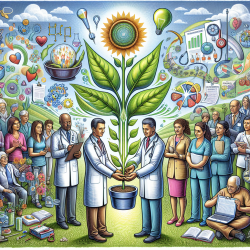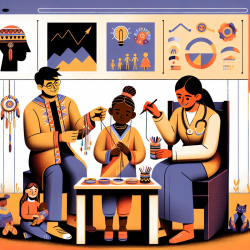In the ever-evolving landscape of education and healthcare, the sustainability of new programs and innovations is crucial for long-term success. Practitioners often face challenges in maintaining the effectiveness of initially successful interventions. A systematic review by Wiltsey Stirman et al. (2012) provides valuable insights into the factors influencing the sustainability of programs and offers recommendations for future research.
Understanding Sustainability in Practice
The concept of sustainability in program implementation refers to the ability of a program to continue delivering desired outcomes over time. This involves not only maintaining the core components but also adapting to changing contexts without losing effectiveness. The review highlights that sustainability is influenced by various factors, including organizational context, capacity, processes, and characteristics of the innovation itself.
Key Influences on Sustainability
- Organizational Context: The culture, leadership, and policies within an organization play a significant role in sustaining programs. Supportive leadership and a conducive organizational climate are essential for long-term success.
- Capacity: Adequate resources, funding, and workforce stability are critical. Programs with strong internal and external support systems are more likely to be sustained.
- Processes: Continuous evaluation, stakeholder engagement, and adaptation processes help maintain program relevance and effectiveness.
- Innovation Characteristics: The adaptability and perceived benefits of an innovation influence its sustainability. Programs that align well with organizational goals and can be modified as needed tend to last longer.
Recommendations for Practitioners
To enhance skills in implementing sustainable programs, practitioners should consider the following strategies:
- Adopt a Comprehensive Approach: Use a multi-level perspective that considers individual, organizational, and system-level factors when planning and evaluating programs.
- Engage Stakeholders: Involve key stakeholders from the outset to ensure buy-in and support throughout the program's lifecycle.
- Focus on Adaptation: Be open to modifying program components in response to feedback and changing needs while maintaining core elements.
- Pursue Continuous Learning: Stay informed about new research findings and best practices through professional development opportunities such as conferences and webinars.
The Path Forward: Encouraging Further Research
The review by Wiltsey Stirman et al. emphasizes the need for clearer definitions of sustainability and more rigorous research methods. Prospective studies that examine sustainability over time will provide deeper insights into what works in different contexts. Practitioners are encouraged to contribute to this growing body of knowledge by documenting their experiences and outcomes.
For those interested in delving deeper into the research on sustainability of programs, I recommend reading the original research paper: The sustainability of new programs and innovations: a review of the empirical literature and recommendations for future research.










